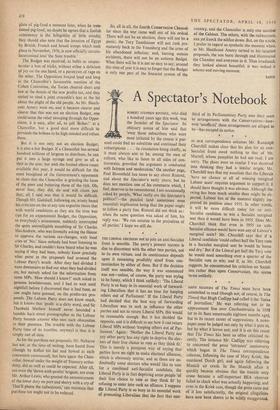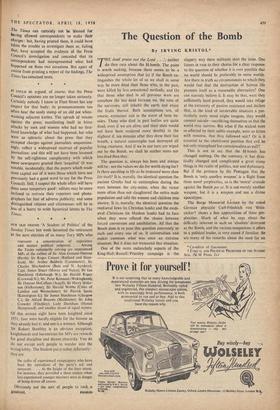MANY READERS of The Times must have been astonished to
read (though not, of course, in The Times) that Hugh Cudlipp had called it the 'Judas of journalism.' He was referring not to its appeasement line over Czechoslovakia in 1938 (or to its Suez somersaults eighteen months ago), but to its recent career of suppressions. A news- paper must be judged not only by what it puts in, but by what it leaves out; and it is on this count that The Times has been so often criticised re- cently. The instance Mr. Cudlipp was referring to concerned the press 'intrusion' controversy which began in The Times correspondence columns, following the case of Mary Kriek, the murdered Dutch girl; and again following the Munich air crash. In the Munich affair it quickly became obvious that the trouble only arose because a self-important BEA observer failed to check what was actually happening; and even in the Kriek case, though the press came out of it less satisfactorily, the original allegations have now been shown to be wildly exaggerated, The Times can certainly not be blamed for having allowed correspondents to make their charges: but, having printed them, it could have taken the trouble to investigate them or, failing that, have accepted the evidence of the Press Council's investigation and conceded that its correspondents had misrepresented what, had happened on these two occasions. But apart of course from printing a report of the findings, The Times has remained mute.





























 Previous page
Previous page